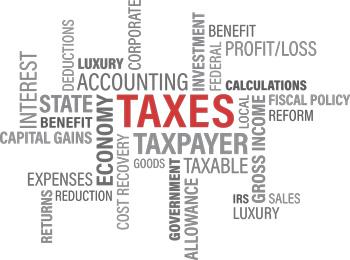As a general rule, any income earned within the Philippines will be taxed by the Bureau of Internal Revenue (BIR). But as with any rule, there are certain exemptions to the filing of income tax returns. In this article, we discuss who are required to file these, those who aren’t, those who are completely exempted from filing these, and possible penalties for failing to declare the correct amount of taxes.
Who Has to File Returns
 Filipino Citizens Based in the Philippines. You are required to file a return if you are a Filipino who currently lives in the country and receive income from within or outside the country, and meet any of the following criteria:
Filipino Citizens Based in the Philippines. You are required to file a return if you are a Filipino who currently lives in the country and receive income from within or outside the country, and meet any of the following criteria:
- You are under the employ of one or several employers at any time within the taxable year
- You are self-employed individual working as a professional or engaged in trade
- You are a mixed-income earner who derives income as a self-employed individual or an employee within the taxable year
- You earn income on top of your income derived from your business or practice of your profession that is not otherwise subject to a final tax
- You are a married individual working for a sole employer with your income correctly withheld, but your spouse isn’t able to avail of substituted filing
- You are a marginal income earner
- Your income tax in the past calendar year wasn’t held correctly
Filipino Citizens Based Outside the Philippines. Filipino citizens who are based abroad may also be required to file income tax returns if they earn an income from the Philippines.
Non-Filipinos Deriving Income from the Philippines. Non-Filipinos must also file income tax returns if they derive income from sources within the country. Only the income you earned here will be subject to tax.
Aside from those mentioned above, the following must also file their income tax returns:
- Local partnerships and corporations that earn income from within and outside the country
- Foreign partnerships and corporations that earn income from within the country
- Estates and trusts engaged in trade or business
Who are Exempted from Filing Returns
Exemptions to the filing of tax returns may be divided into two categories: those who are not required to file it and those who are completely exempted from filing.
Who are not Required to File Returns. The following are not required to file income tax returns:
- Minimum wage earners
- Income earners whose gross income for the year doesn’t exceed their total personal and additional exemptions
- Individuals who receive income up to P60,000 from a sole employer with the income tax withheld correctly
- Those whose income has been subjected to final withholding tax
- Those who are qualified for substituted filing and meet the following requirements:
- Employed by a sole employer within the taxable year
- The individual earns purely compensation income from said employer
- The individual’s tax due is equivalent to the tax withheld by the employer
- For married individuals, their spouse must also comply with the said conditions
- The employer files the annual information return (BIR Form 1604CF)
- The employer issues BIR Form 2316 to all employees
Who are Exempted from Filing Returns. Meanwhile, these are completely exempted from filing returns:
- Non-resident Filipinos who:
- Have established with the BIR that they prefer to live outside the Philippines
- Moves out of the country and lives abroad either as an immigrant or for permanent employment
- Works and receives income abroad
- A Filipino citizen who was previously considered a non-resident citizen
- Overseas Filipino Workers who earn income solely from sources outside the country
- Filipino citizens working overseas as a seaman, granted that their vessel is engaged only in international trade
Why You Need to File Income Tax Returns
 The BIR imposes stiff penalties on those who fail to file their tax returns, or who do so incorrectly.
The BIR imposes stiff penalties on those who fail to file their tax returns, or who do so incorrectly.
Tax evasion is where a person or a corporation employs illegal practices to pay the right tax or avoid paying taxes at all. This comes with a fine of between P30,000 and P100,000 as well as imprisonment of between two and four years.
Those who fail to file their return, provide accurate information, remit taxes, and refund excess withholding tax face a fine of at least P10,000 and imprisonment of between a year to 10 years. Falsifying information on their return, meanwhile, comes with a fine of between P10,000 and P20,000, and imprisonment of between a year and three years.
Naturally, errors could occur when filing tax returns, especially if you file it on your own. It would therefore be helpful to work with an accountant or a tax consultant who can assist you in ensuring that you pay the correct taxes, as well as ensuring that you file accurate deductible expenses.
At Beyond D Numbers, our team of experienced and professional accountants are ready to assist you with your tax compliance requirements, as well as helping you manage your payroll and more. For more details, contact us today.
Disclaimer: Information contained in this article may become outdated and is therefore meant as general guidance only. It is not intended as professional accounting or tax advice.